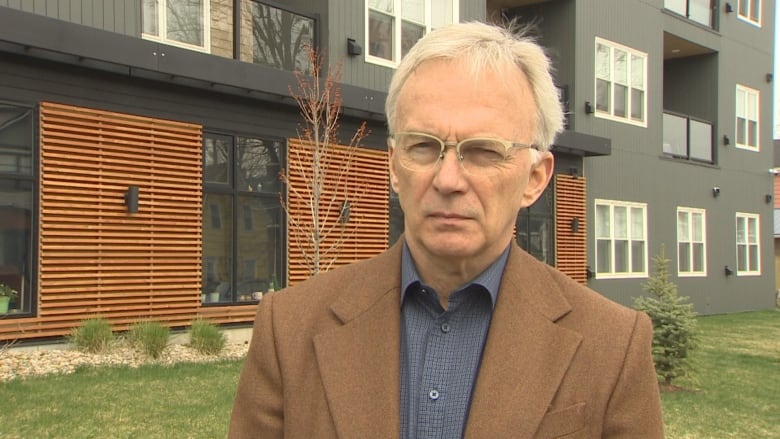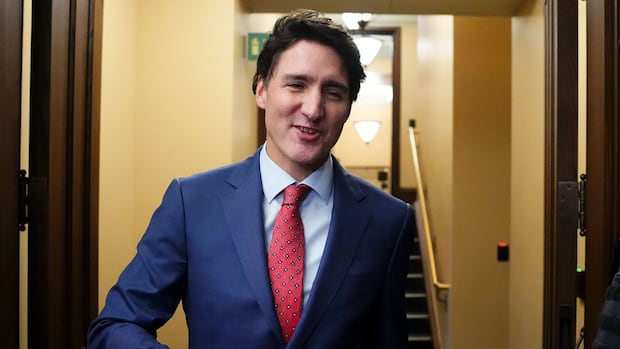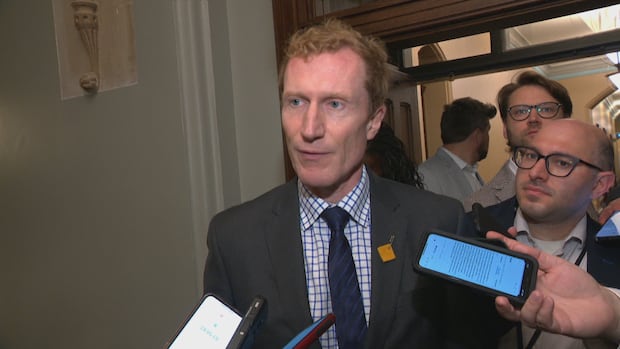
When Justin Trudeau became leader of the Liberal Party of Canada on April 14, 2013, he took the helm of a caucus of 35 MPs — the smallest contingent in the party’s history. Twenty-four of those MPs had endorsed him during the leadership campaign.
Some 4,210 days later, the Liberal caucus gathered for its usual Wednesday morning meeting. There, the prime minister was told that 24 MPs believe it’s time for him to step aside as leader.
Two dozen MPs would have accounted for fully two-thirds of the Liberal caucus in 2013. That they now account for just a sixth of the current caucus is a testament to the success the party has enjoyed under Trudeau’s leadership over the last 11 years.
But it’s still a blow to a prime minister who was already trailing in the polls and facing the daunting challenge of winning a fourth mandate.
Some Liberal MPs issued an ultimatum to Prime Minister Justin Trudeau Wednesday: decide in the next few days if you want to stay on as leader or face some unspecified consequences. In that context, some 24 Liberal MPs have signed a document calling on Trudeau to go. Sources said that document, laying out the argument for Trudeau’s resignation, was read out in the party’s caucus meeting on Parliament Hill today.
It’s also perhaps a reminder of how the party ended up on the precipice it occupied when it turned to Trudeau in 2013.
“Over the course of a decade in power, facing a divided opposition, the party had become focused on itself rather than on the Canadians who supported it, elected it, and had faith in it,” Trudeau wrote in his autobiography, Common Ground, arguing that the Liberal Party “earned” the “drubbing” it received from Canadians.
Right now, the Liberal Party seems very focused on itself. And so it seems in great danger of earning another drubbing.
What does the dissent amount to?
In a caucus of 152 MPs, 24 votes against the prime minister don’t amount to anything obviously decisive — particularly when some of those 24 MPs are apparently still unwilling to reveal themselves, either publicly or to the prime minister.
The official tally of dissenting MPs is also less than the 30 or 40 that were rumoured. (You might have thought the would-be mutineers would have learned something from their own government’s tendency to inflate expectations.)
The dissidents have given the prime minister until next week to make a decision on his future, which suggests they’re willing to somehow escalate the pressure on Trudeau. But the fact they didn’t specify what the consequences would be for Trudeau if he doesn’t meet that deadline makes it that much harder to know how seriously to take this revolt.
The prime minister is still not in a position where he can blithely dismiss his critics, either. The potential rebellion of two dozen legislators would be a significant problem for any political leader in Canada — such public dissent is relatively rare in this country.

Trudeau also once enthused that Liberal MPs would be the voice of their communities in Ottawa. But some of those voices are now saying that, in the words of Liberal MP Sean Casey, “people have had enough.”
“They’ve tuned him out and they want him to go,” Casey told CBC’s Power & Politics last week.
A month ago, Liberal MP Alexandra Mendes reported a similar sentiment.
“It’s a very generalized … ‘We’re tired of his face’ kind of thing,” she said.
That fatigue is unsurprising. Trudeau has been prime minister — and the very public face of the federal government — for nearly nine years. Even if the last several years had been perfectly serene, the prime minister would be contending with some level of exhaustion — and Trudeau has spent the last four years governing through a global pandemic, stubborn inflation and high interest rates.
But in a recent conversation with Liberal MP Nathaniel Erskine-Smith, Trudeau seemed to want to turn the idea of fatigue on its head by arguing that familiarity can breed not just contempt, but also trust.
“Someone may disagree with me on this or that and the other things, but they know the frame that I’m working from, they know what drives me, they know what matters to me and that is not something to simply shrug off,” Trudeau said.
“That idea of knowing someone’s values, knowing the frame with which they approach challenges is not just important, it’s ultimately sort of the only thing when you are picking your representatives … or whether it’s picking a prime minister.”
Those comments might also double as an argument against the Liberals opting for an untested and largely unknown alternative. For the Liberals, there is some risk that a leadership race could create new divisions (or exacerbate existing tensions within the Liberal caucus).
Obviously, some members of the Liberal caucus feel those risks are worth taking.
Another ‘robust’ discussion among ‘family’
The Liberal Party has a long and illustrious history of pining for some other leader. Such was the infamy and damage of that history that Trudeau swore to turn the page on the era of “hyphenated Liberals” when he became leader in 2013. And the lack of a clear and obvious alternative to Trudeau — someone else around whom some critical mass of Liberals are ready to rally — may still be dampening the appetite for change.
But the signs of Liberal anxiety go back to at least the summer of 2023, when the government’s polling numbers first started to seriously wobble. When Liberal MPs gathered in London, Ont. that September, concerns were aired behind closed doors (and the details were quickly leaked to reporters).
Liberals emerged from that meeting in London saying there had been a “robust” discussion among “family.” Some of them said the same things on Wednesday, more than 13 months later.
In this case, several Liberals said they were united in their determination to prevent Conservative Leader Pierre Poilievre from becoming prime minister. And while that might seem like a bare minimum requirement for membership in the Liberal caucus, it might have some value in focusing the Liberal mind.
But right now, it’s obviously not the Liberal government’s only focus — or maybe even its primary focus.
The lesson of the 2011 federal election — and the vote that reduced Trudeau’s party to barely three dozen MPs — was that nothing about the Liberal Party’s success, or even survival, is assured, however much it might have once been regarded as the “natural governing party” of this country. And in Trudeau’s own telling, that fall was directly attributable to the party’s turn inward, toward its own squabbles, disagreements and intramural competitions.
Even if that’s a somewhat oversimplified explanation for how the Liberal Party nearly met its political death, there’s certainly some truth to the idea that a party consumed by itself is in danger of losing Canadians — or at least losing the next election.
Immigration Minister Marc Miller says any time spent focusing on some Liberal MPs’ efforts to oust Prime Minister Justin Trudeau ‘is a minute that’s not spent on Pierre Poilievre and what he wants to do to this country.’ Miller says Trudeau has the support of the ‘vast majority of caucus’ and the entirety of cabinet.
“Any minute spent on this garbage is a minute that’s not spent on Pierre Poilievre and what he wants to do to this country, and I think that’s very dangerous,” Immigration Minister Marc Miller said on Tuesday.
The rebels in caucus might have resented his use of the term “garbage” — though Miller may have been referring specifically to the cloak-and-dagger leaks and scuttlebutt of the last two weeks. But it might be hard for any Liberal to disagree with the rest of Miller’s thought.
It’s not clear what happens next. But for this generation of Liberals, their time left in power — or at least the time remaining to make an argument for re-election — might be measured in days or weeks. The next fixed election date is now less than a year away and you probably won’t find anyone in Ottawa who thinks this Parliament will make it that far.
And if time is precious, the Liberals have good reasons to avoid burning any more than they need to on themselves.

